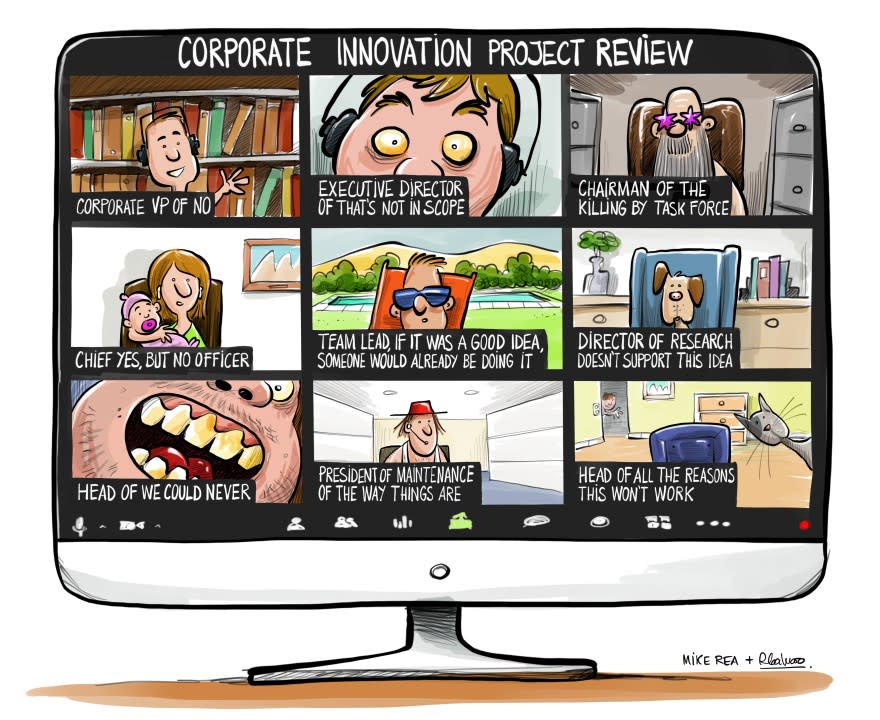Insights
Innovation: Contain, Delay, Research, Mitigate
Written by Mike Rea — .
The UK, rather famously, adopted a four phase approach to the Covid-19 spread. One can argue that these phases should not have been seen as sequential, but run in parallel - the idea that 'research' would begin only after the 'failure' of the contain and delay phases, or that mitigation would wait until all three had run their course, seems odd to a strategist.
However, there is an interesting parallel to pharma - the first two phases rely on a 'prediction paradigm' where, because you know what is happening, you can make decisions. Waiting to pivot until you find out that you don't know is strategically unsound, because it is pretty certain that you do not know. This is true of pharma R&D that relies on the prediction paradigm.
This four phase approach is also an interesting metaphor for the way that corporate innovation happens to companies, if you'll allow the stretch that ideas are like viruses to stable companies. A group will be asked to investigate the idea, but their real goal (usually unconscious) is to contain it - perhaps confine it to the manufacturing group, the IT department... 'Containing' may be called 'owning' or 'championing', but both the group who take the idea in (who probably understand some of the idea, and also want to heroically carry it aloft) and the company (who really would prefer to get on with business as usual) will be very happy that it remains 'outside' and under investigation.
Whatever the strengths of the idea, the company will often then embark on a 'delay' phase. It won't be called that, as companies will find words like 'business case' or 'diligence' for the review, but it will certainly take its time to reach a decision maker.
The Research phase will begin when it is clear that the idea won't follow that slow and steady path, but is being adopted elsewhere and is raising questions internally. Working groups, task forces and more will be set up to investigate - often ignoring the original group.
The Mitigation phase is perhaps the most interesting: trying to protect the core business from the new idea, and often the most creative - lots of reasons will be given for a 'not here' or 'we already tried that' or 'really, we're already doing it'.
While these observations are easy, the core of the challenge that I see lies in the way that 'innovation' is managed in most companies. It is either given its own department, where, like 'Digital', it is expected to have all of the ideas and somehow make the company adopt them, or to be the place that all new ideas are evaluated. Both of those strategies are bound to fail.
I remember being asked to 'judge' an innovation project at a company, where ideas were invited from the whole company. Unfortunately, the hard question that I asked next limited my engagement: how does one 'judge' an idea? And, who else is on the judging panel? As you'd expect, perhaps, the panel would be senior management plus me. Well, that was a recipe for a scenario where all 'ideas' would be ones that senior management understood, and were not threatened by - management does tend to prefer ideas that bring gentle change, and top down... The question of how one can 'judge' an idea was never addressed...
Innovation is systemic, systematic and cultural. Any company that treats ideas like viruses will delegate the response to its 'experts' - however, as so many have found during the pandemic, there are no experts with the whole picture. Understanding a 'digital' idea is one thing, for example, but understanding all of the impacts it could have on a company is another. To expect a siloed department to do so is clearly unrealistic, but it is exactly what most companies do.
The 'idea as virus' may seem a stretch, but just as 8-10% of the human genome is of viral origin, we see, in retrospect, that companies are rarely as uninfected by external ideas as they seem. They do make their way in, but it may make sense to revisit the strategy by which they're embraced or rejected - doing either more quickly would be a good start.
IDEA Pharma
We work with clients early in lifecycle, crafting a compelling product story and building a best-in-class strategy that helps every molecule reach its potential. It’s what we do best. And there’s nobody that does it quite like us IDEA Pharma
